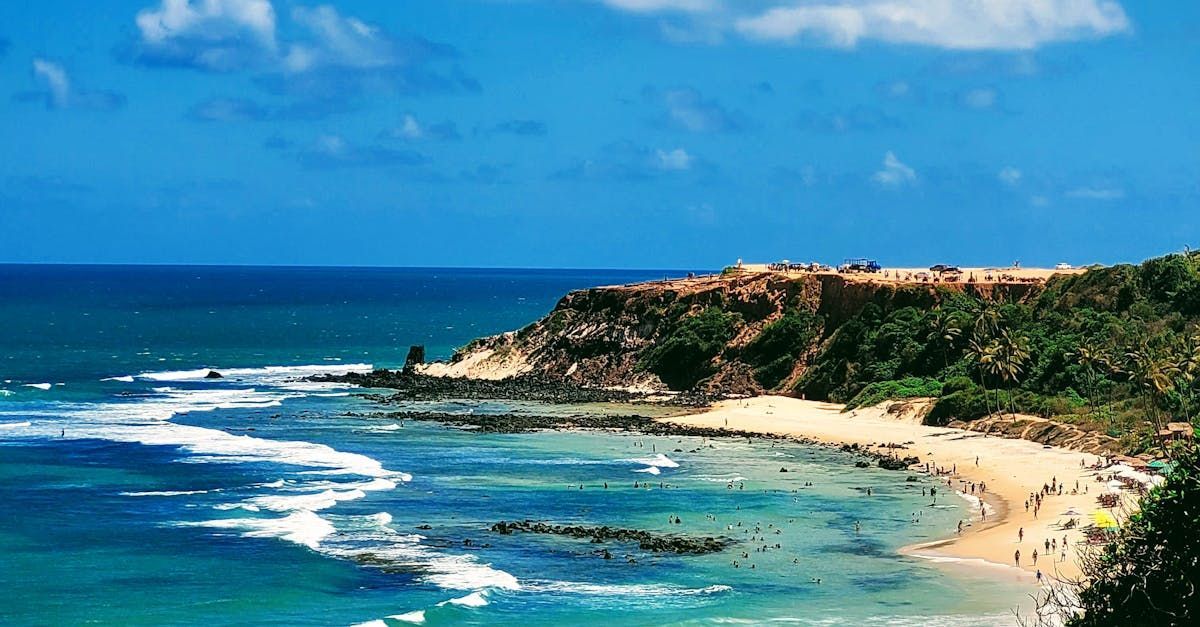EUROTRIP: work, live and travel in Europe with a Digital Nomad Visa
Upping sticks and moving to a different country is not a decision to be taken lightly. However, now the Digital Nomad Visa has made it possible for individuals and families to plan a life in Europe for a limited period of time. Portugal, Malta, Greece and Spain are attractive for remote workers due to the abundance of work hubs, warm weather, low cost of living and connections to major EU capitals.

“With the Digital Nomad Visa also being a pathway for permanent residency, it can be an opportunity to test a lifestyle many did not have the chance to try before. If planned carefully, under the Digital Nomad Visa, it is still possible to live in two different countries within a couple of years.”
First things first, what is Digital Nomadism?
Digital Nomadism is a trend that started in the early 2000s and gained traction during the Covid-19 pandemic, which forced workers to perform their duties remotely. With remote work becoming the norm, countries were also forced to catch up and regulate their stay with the so-called Digital Nomad Visas. If you heard the calling of digital nomadism, you should know that it is not as simple as just packing your laptop and working from a paradisiac beach. You need to factor in how long you can stay in out of your country without tax implications and also if you need a visa to stay in the country of choice.
That´s why it was important to regulate the stay of digital nomads. The Digital Nomad Visa is a long-term visa that grants residency rights to foreigners who can do their work remotely and are not employed by a company or entity registered within the respective country where they’re applying. The residency period ranges, on average, between six months to two years and can be subject to extension and often, you are not required to be a registered tax resident. However, tax residency depends on every government’s regulation and sometimes on how long you maintain residence.
Where can I go in Europe?
There are over 10 countries offering DN Visas, but this sentence might be obsolete by the time I push the enter button as many countries are catching up fast. If you plan to set up your remote work in Europe you could apply for visas in Portugal, Croatia, the Czech Republic, Estonia, Germany, Hungary, Greece, Iceland, Italy, Malta, Romania, Spain, and Norway. The Portuguese Ministry of Foreign Affairs has recently announced that 200 applicants have been granted a Digital Nomad Visa to live and work in the country, since the launch of the visa scheme in October 2022. According to the government body, the remote workers who have been granted the visa come from the USA, United Kingdom and Brazil.
These are very exciting times for remote workers and also for the countries offering the visas. It is an opportunity to bring talent and specific skill sets whilst boosting the local economy. According to the Nomad List, the beach town of Ericeira, just a short drive from Lisbon, in Portugal is listed in the 4th position as one the world´s best locations to work remotely.
First things first, what is Digital Nomadism?
Digital Nomadism is a trend that started in the early 2000s and gained traction during the Covid-19 pandemic, which forced workers to perform their duties remotely. With remote work becoming the norm, countries were also forced to catch up and regulate their stay with the so-called Digital Nomad Visas. If you heard the calling of digital nomadism, you should know that it is not as simple as just packing your laptop and working from a paradisiac beach. You need to factor in how long you can stay in out of your country without tax implications and also if you need a visa to stay in the country of choice.
That´s why it was important to regulate the stay of digital nomads. The Digital Nomad Visa is a long-term visa that grants residency rights to foreigners who can do their work remotely and are not employed by a company or entity registered within the respective country where they’re applying. The residency period ranges, on average, between six months to two years and can be subject to extension and often, you are not required to be a registered tax resident. However, tax residency depends on every government’s regulation and sometimes on how long you maintain residence.
Where can I go in Europe?
There are over 10 countries offering DN Visas, but this sentence might be obsolete by the time I push the enter button as many countries are catching up fast. If you plan to set up your remote work in Europe you could apply for visas in Portugal, Croatia, the Czech Republic, Estonia, Germany, Hungary, Greece, Iceland, Italy, Malta, Romania, Spain, and Norway. The Portuguese Ministry of Foreign Affairs has recently announced that 200 applicants have been granted a Digital Nomad Visa to live and work in the country, since the launch of the visa scheme in October 2022. According to the government body, the remote workers who have been granted the visa come from the USA, United Kingdom and Brazil.
These are very exciting times for remote workers and also for the countries offering the visas. It is an opportunity to bring talent and specific skill sets whilst boosting the local economy. According to the Nomad List, the beach town of Ericeira, just a short drive from Lisbon, in Portugal is listed in the 4th position as one the world´s best locations to work remotely.
“With the Digital Nomad Visa also being a pathway for permanent residency, it can be an opportunity to test a lifestyle many did not have the chance to try before. If planned carefully, under the Digital Nomad Visa, it is still possible to live in two different countries within a couple of years.”
First things first, what is Digital Nomadism?
Digital Nomadism is a trend that started in the early 2000s and gained traction during the Covid-19 pandemic, which forced workers to perform their duties remotely. With remote work becoming the norm, countries were also forced to catch up and regulate their stay with the so-called Digital Nomad Visas. If you heard the calling of digital nomadism, you should know that it is not as simple as just packing your laptop and working from a paradisiac beach. You need to factor in how long you can stay in out of your country without tax implications and also if you need a visa to stay in the country of choice.
That´s why it was important to regulate the stay of digital nomads. The Digital Nomad Visa is a long-term visa that grants residency rights to foreigners who can do their work remotely and are not employed by a company or entity registered within the respective country where they’re applying. The residency period ranges, on average, between six months to two years and can be subject to extension and often, you are not required to be a registered tax resident. However, tax residency depends on every government’s regulation and sometimes on how long you maintain residence.
Where can I go in Europe?
There are over 10 countries offering DN Visas, but this sentence might be obsolete by the time I push the enter button as many countries are catching up fast. If you plan to set up your remote work in Europe you could apply for visas in Portugal, Croatia, the Czech Republic, Estonia, Germany, Hungary, Greece, Iceland, Italy, Malta, Romania, Spain, and Norway. The Portuguese Ministry of Foreign Affairs has recently announced that 200 applicants have been granted a Digital Nomad Visa to live and work in the country, since the launch of the visa scheme in October 2022. According to the government body, the remote workers who have been granted the visa come from the USA, United Kingdom and Brazil.
These are very exciting times for remote workers and also for the countries offering the visas. It is an opportunity to bring talent and specific skill sets whilst boosting the local economy. According to the Nomad List, the beach town of Ericeira, just a short drive from Lisbon, in Portugal is listed in the 4th position as one the world´s best locations to work remotely.
First things first, what is Digital Nomadism?
Digital Nomadism is a trend that started in the early 2000s and gained traction during the Covid-19 pandemic, which forced workers to perform their duties remotely. With remote work becoming the norm, countries were also forced to catch up and regulate their stay with the so-called Digital Nomad Visas. If you heard the calling of digital nomadism, you should know that it is not as simple as just packing your laptop and working from a paradisiac beach. You need to factor in how long you can stay in out of your country without tax implications and also if you need a visa to stay in the country of choice.
That´s why it was important to regulate the stay of digital nomads. The Digital Nomad Visa is a long-term visa that grants residency rights to foreigners who can do their work remotely and are not employed by a company or entity registered within the respective country where they’re applying. The residency period ranges, on average, between six months to two years and can be subject to extension and often, you are not required to be a registered tax resident. However, tax residency depends on every government’s regulation and sometimes on how long you maintain residence.
Where can I go in Europe?
There are over 10 countries offering DN Visas, but this sentence might be obsolete by the time I push the enter button as many countries are catching up fast. If you plan to set up your remote work in Europe you could apply for visas in Portugal, Croatia, the Czech Republic, Estonia, Germany, Hungary, Greece, Iceland, Italy, Malta, Romania, Spain, and Norway. The Portuguese Ministry of Foreign Affairs has recently announced that 200 applicants have been granted a Digital Nomad Visa to live and work in the country, since the launch of the visa scheme in October 2022. According to the government body, the remote workers who have been granted the visa come from the USA, United Kingdom and Brazil.
These are very exciting times for remote workers and also for the countries offering the visas. It is an opportunity to bring talent and specific skill sets whilst boosting the local economy. According to the Nomad List, the beach town of Ericeira, just a short drive from Lisbon, in Portugal is listed in the 4th position as one the world´s best locations to work remotely.
If you like travelling, this is the time to do it!
If you think I have not shared enough information to whet your appetites for the digital nomad lifestyle, then allow me throw in more data to enrich your research. If you want to take your time visiting top European cities, whilst not having to deal with the pressure of moving permanently, you should know that those who acquire the Digital Nomad Visa are permitted visa-free travel across the European Union’s Schengen Area, which consists of 27 EU member states — for as long as their permit is valid. So, what are you waiting for?
If you need more help with your research, get in touch with our team.
The VP! - Via Portugal is a portugal based migration agency focused on helping anyone to emigrate, study, work, invest and live in Portugal. It specializes in Residence Visas (Income, Study, Entrepreneur, Work, Golden Visa), Portuguese Nationality and Citizenship, Certificate Search (seat, marriage, death), Divorce Approval (Foreign Judgment), NIF, Company opening and account banking, among others. Services before SEF: legalization through Expression of Interest, Residence Permit, family reunification and Investment in Portugal.
VP! Via Portugal. Your trusted partner in Portugal.
For those who want to recover their ancestral ties with Portugal, live in Portugal or invest, we provide an advisory service from planning your arrival and that of your family, to its legalization and de facto change.
We work with Visa Application processes before the Consulates in your area of residence.
If you are entitled to Portuguese nationality, we instruct and file the processes directly in Portugal.
We also provide advice on researching certificates, transcribing marriages and homologating divorces.
We also have the Relocation service for you who intend to move to Portugal.
We give full assistance regarding the acquisition and rental of real estate, vehicle purchase and whatever is necessary for your restart.
We use our network of partners when we need the services of lawyers registered with the Portuguese Bar Association in Portugal and Brazil, notaries registered with the Portuguese Notary Association, solicitors, accountants, real estate agents and outplacement agents.
We are here for you.
Via Portugal - Vistos, Nacionalidade, Cidadania, Legalização, Investimento e Empreendedorismo


 Rating
Rating

Como mais podemos ajudá-lo hoje?
Queremos saber como podemos simplificar a sua mudança para Portugal, para que seja o mais agradável e livre de problemas possível. Desde a compra da sua casa de sonho até à contratação de seguro de saúde, queremos saber como podemos ajudar.
Make your wish list ➝
Os conselhos e informações fornecidos neste site são apenas para fins informativos e educacionais e não substituem a consulta com um profissional.
Por favor, procure um advogado ou profissional financeiro para aconselhamento sobre a sua situação específica.
A VP! não é um banco, contabilista, consultor fiscal/investidor, ou escritório de advogados.
A VP! actua como intermediário, sendo um facilitador do processo com os melhores profissionais financeiros e jurídicos.
Via Portugal. Todos os direitos reservados.









